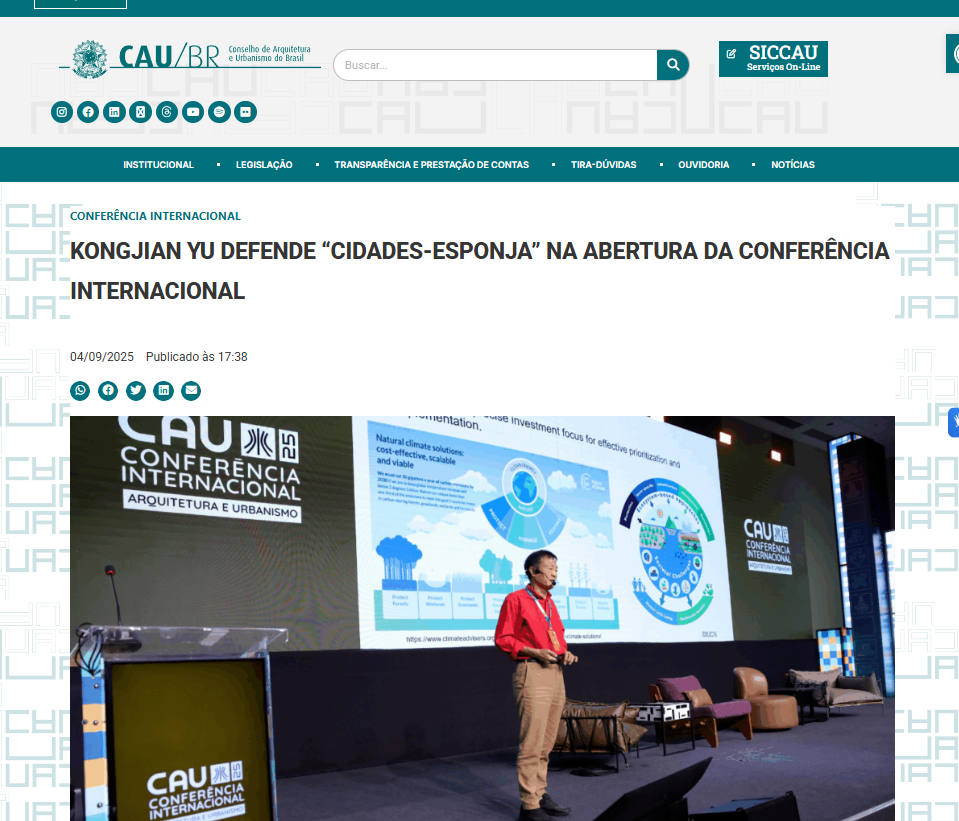CAU: Kongjian Yu Advocates 'Sponge Cities' at the Opening of the 2025 CAU International Conference

At the opening of the international conference, Chinese landscape architect and urban planner Kongjian Yu underscored the significance of the “sponge city” concept. He argued that in the face of extreme weather and flood risks, traditional grey infrastructure—such as concrete drainage systems and flood walls—lacks resilience and adaptability. Instead, nature-based “sponge cities” employ ecological infrastructure—wetlands, parks, permeable paving, rain gardens, green roofs—to absorb, store, and naturally cleanse stormwater. This strategy not only enhances urban water management resilience and sustainability, but also improves ecological health and public well-being.
......
